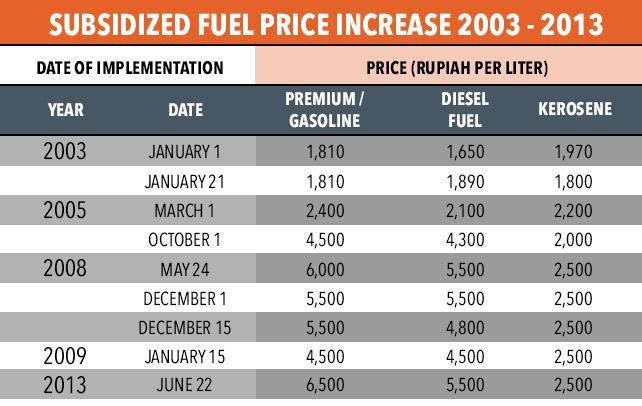Berita Terkait
- Anggaran DPR RI Tahun 2016-2018
- Kehadiran Anggota DPR Pada Masa Sidang Ke-2 Tahun 2017-2018
- Review Kinerja DPR-RI Masa Sidang ke-2 Tahun 2017-2018
- Fokus DPR Masa Sidang ke-3 Thn 2017-2018
- Konsentrasi DPR Terhadap Fungsinya Pada Masa Sidang ke - 3 Tahun 2017 – 2018
- Kehadiran Anggota DPR RI Masa Sidang ke-3 Tahun 2017-2018
- Review Kinerja Masa Sidang Ke-3 Tahun 2017-2018
- Konsentrasi DPR Terhadap Fungsinya Pada Masa Sidang ke - 4 Tahun 2017– 2018
- Peristiwa Menarik Masa Sidang ke-4 Tahun 2017-2018 (Bidang Legislasi)
- Peristiwa Menarik Masa Sidang ke-4 Tahun 2017-2018 (Bidang Pengawasan)
- Peristiwa Menarik Masa Sidang ke-4 Tahun 2017-2018 (Bidang Keuangan, Lainnya)
- Review Kinerja DPR-RI Masa Sidang ke-4 Tahun 2017-2018
- (Tempo.co) Kasus Patrialis Akbar, KPPU: UU Peternakan Sarat Kepentingan
- (Tempo.co) Ini Proyek-proyek yang Disepakati Jokowi-PM Shinzo Abe
- (Tempo.co) RUU Pemilu, Ambang Batas Capres Dinilai Inkonstitusional
- (Media Indonesia) Peniadaan Ambang Batas Paling Adil
- (DetikNews) Besok Dirjen Pajak Panggil Google
- (Tempo.co) Aturan Komite Sekolah, Menteri Pendidikan: Bukan Mewajibkan Pungutan
- (Rakyat Merdeka) DPR BOLEH INTERVENSI KASUS HUKUM
- (Aktual.com) Sodorkan 4.000 Pulau ke Asing, Kenapa Pemerintah Tidak Menjaga Kedaulatan NKRI?
- (RimaNews) Pimpinan MPR dan DPR akan bertambah dua orang
- (Warta Ekonomi) Jonan Usulkan Kepada Kemenkeu Bea Ekspor Konsentrat 10 Persen
- (Tempo.co) Eko Patrio Dipanggil Polisi, Sebut Bom Panci Pengalihan Isu?
- (TigaPilarNews) DPR Harap Pemerintah Ajukan Banyak Obyek Baru untuk Cukai
- (Tempo.co) Menteri Nasir: Jumlah Jurnal Ilmiah Internasional Kita Meningkat
Kategori Berita
- News
- RUU Pilkada 2014
- MPR
- FollowDPR
- AirAsia QZ8501
- BBM & ESDM
- Polri-KPK
- APBN
- Freeport
- Prolegnas
- Konflik Golkar Kubu Ical-Agung Laksono
- ISIS
- Rangkuman
- TVRI-RRI
- RUU Tembakau
- PSSI
- Luar Negeri
- Olah Raga
- Keuangan & Perbankan
- Sosial
- Teknologi
- Desa
- Otonomi Daerah
- Paripurna
- Kode Etik & Kehormatan
- Budaya Film Seni
- BUMN
- Pendidikan
- Hukum
- Kesehatan
- RUU Larangan Minuman Beralkohol
- Pilkada Serentak
- Lingkungan Hidup
- Pangan
- Infrastruktur
- Kehutanan
- Pemerintah
- Ekonomi
- Pertanian & Perkebunan
- Transportasi & Perhubungan
- Pariwisata
- Agraria & Tata Ruang
- Reformasi Birokrasi
- RUU Prolegnas Prioritas 2015
- Tenaga Kerja
- Perikanan & Kelautan
- Investasi
- Pertahanan & Ketahanan
- Intelijen
- Komunikasi & Informatika
- Kepemiluan
- Kepolisian & Keamanan
- Kejaksaan & Pengadilan
- Pekerjaan Umum
- Perumahan Rakyat
- Meteorologi
- Perdagangan
- Perindustrian & Standarisasi Nasional
- Koperasi & UKM
- Agama
- Pemberdayaan Perempuan & Perlindungan Anak
- Kependudukan & Demografi
- Ekonomi Kreatif
- Perpustakaan
- Kinerja DPR
- Infografis
(Jakarta Post) Reallocate Subsidy, Its not Just Fiscal!

As international oil prices have declined by more than 25 percent over the five past months, to as low as US$85/barrel now, many lawmakers and even analysts have made the absurd demand that the Jokowi government annull its plan to raise subsdized-fuel prices, which are currently about 50 percent of their economic costs.
Even more astonishing is that leaders of the Indonesian Democratic Party of Struggle (PDI-P), the main sponsor of Joko “Jokowi” Widodo’s presidential nomination earlier this year, have unashamedly joined in this attempt to sway public opinion against the energy reform by asserting that the fuel-price increase will only increase the suffering of the common people.
Surely these politicians cannot be so stupid as not to know that, as has been demonstrated by all studies, more than 70 percent of the fuel subsidies are enjoyed by middle and high-income consumers.
Considering the fuel subsidy merely as a fiscal problem is completely misguided and a dangerous simplification of the issue, even though it is a blunt fact that the hugely wasteful fuel subsidies, which account for almost 20 percent of the central government’s total spending, have been the main cause of the widening budget and current-account deficits.
We prefer to see the fuel-price increase in a broader perspective as an energy reform because bringing fuel prices up to par with their real costs will force energy efficiency and conservation and enhance the development of other, renewable, sources of energy such as biofuel, geothermal, hydropower, biomass, etc.
Hence, even though international oil prices continue to fall, the government should push ahead with the energy reform, otherwise it will face severe punishment from the markets. Postponing the fuel-price increase will only slow down the ticking of the fuel-subsidy time bomb.
If oil prices continue to fall closer to the subsidized-fuel prices this could be a timely moment for the government to wholly float domestic fuel prices along the lines of the international market quotations, as then president Megawati Soekarnoputri (also the chair of PDI-P) did in January 2002.
At that time, Megawati pegged domestic fuel prices to the international market using Mid Oil Platts Singapore (MOPS) quotations as the reference prices. This means that domestic fuel prices were adjustable every month based on the MOPS quotations and the rupiah’s exchange rate.
By doing so, she freed the government from being held hostage by wildly fluctuating oil prices, removing the fuel-subsidy time bomb from the fiscal management, stopping smuggling and prompting energy efficiency and conservation.
But Megawati made a big mistake when she abandoned this fuel-price policy in 2003 in the hope of getting reelected in the 2004 presidential elections. She lost miserably to Susilo Bambang Yudhoyono.
Allowing fuel prices to float close to their economic costs will also spare the government the pointless political bickering at the House of Representatives where Jokowi faces a hostile coalition of opposition parties that controls a majority at the legislature.